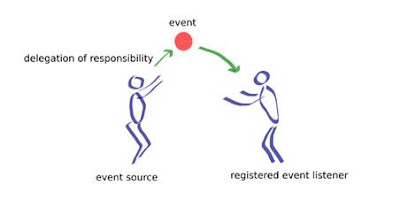Basic I/O Functions in C/C++
Basic I/O Functions in C/C++
Character I/O (getc, getchar, putc, putchar)
getchar() &putchar() functions
The
getchar() function reads a character from the terminal and
returns it as an integer. This function reads only single character at a time.
You can use this method in the loop in case you want to read more than one
characters. The putchar() function
prints the character passed to it on the screen and returns the same character.
This function puts only single character at a time. In case you want to display
more than one characters, use putchar() method in the loop.
#include
<stdio.h>
#include
<conio.h>
void main( )
{
int c;
printf("Enter a
character");
c=getchar();
putchar(c);
getch();
}
When you will compile the above code,it will ask you to enter a value.
When you will enter the value, it will display the value you have entered.
gets() & puts() functions
The
gets() function
reads a line from stdin into the buffer pointed to by s until either a
terminating newline or EOF (end of file) occurs. The puts() function
writes the string s and a trailing newline to stdout.
#include<stdio.h>
#include<conio.h>
void main()
{
charstr[100];
printf("Enter a
string");
gets(str);
puts(str);
getch();
}
When you will
compile the above code, it will ask you to enter a string. When you will enter
the string, it will display the value you have entered.
getc(), putc() functions
getc(), putc() functions are file handling function in C programming
language which is used to read a character from a file (getc) and display on
standard output or write into a file (putc).
#include <stdio.h>
int main()
{
char ch;
FILE *fp;
if (fp = fopen("test.c",
"r"))
{
ch = getc(fp);
while (ch
!= EOF)
{
putc(ch,
stdout);
ch
= getc(fp);
}
fclose(fp);
return
0;
}
return 1;
}
Formatted and
Console I/O (printf(), scanf(), cin, cout)
C programming
language provides many of the built-in functions to read given input and write
data on screen, printer or in any file.
scanf() and printf() functions
#include<stdio.h>
#include<conio.h>
void main()
{
int i;
printf("Enter
a value");
scanf("%d",&i);
printf(
"\nYou entered: %d",i);
getch();
}
When you will compile the above code, it will ask you to enter a value.
When you will enter the value, it will display the value you have entered.
NOTE : printf() function returns the number of characters
printed by it, and scanf() returns the number of characters read by it.
int i =
printf("welcometorajkot");
In this
program
i will get 15 as value, because welcometorajkot has 15
characters.
The Standard Output Stream (cout)
The predefined object cout is an instance of ostream class.
The cout object is said to be "connected to" the standard output
device, which usually is the display screen. The cout is used in conjunction
with the stream insertion operator, which is written as << which are two
less than signs as shown in the following example.
#include <iostream>
int main()
{
char str[] =
"Hello C++";
cout <<
"Value of str is : " << str << endl;
}
The Standard Input Stream (cin)
The predefined object cin is an instance of istream class.
The cin object is said to be attached to the standard input device, which
usually is the keyboard. The cin is used in conjunction with the stream
extraction operator, which is written as >> which are two greater than
signs as shown in the following example.
#include <iostream>
int main()
{
char name[50];
clrscr();
cout <<
"Please enter your name: ";
cin >> name;
cout <<
"Your name is: " << name << endl;
}
Difference between scanf() and gets()
The main
difference between these two functions is that scanf() stops reading characters
when it encounters a space, but gets() reads space as character too.
If you enter
name as Piyush Patel using scanf() it will only read and
store Piyush and will leave the part after space. But gets()
function will read it completely.



Comments
Post a Comment